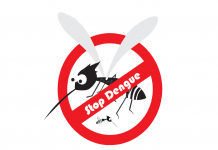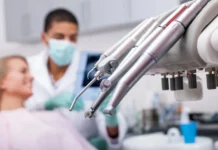Of course, you are going to be alarmed, if after wiping you’d find blood stains on your toilet paper, as you have heard that rectal bleeding can be a sign of cancer. To make sure whether it is cancer or not it is better to visit experts at agurgentcare.com as if there is a mere possibility of cancer, you should check the doctor immediately. But your bleeding may be due to either hemorrhoids or due to small tears on your anus. Read our tips in order to tell one from another and learn how to treat it.
Bleeding due to hemorrhoids:
Swollen veins inside your anus, widely known as hemorrhoids, appear to be the most common reason for the rectal bleeding. Considering the fact that one in twenty people suffer from hemorrhoid makes it no surprise. Hemorrhoids occur inside the colon and around the outer area of the anus.
Symptoms
Although it is better to consult a doctor on whether you have hemorrhoids or not because most of the people who have rectal cancer, at first think that they have hemorrhoids. What can help you tell one from another is the colour of blood, which in the case of hemorrhoids is bright red. The very first symptoms of hemorrhoids are anal pain and itching. If the condition worsens, you should immediately visit Urgent Care Warren.
Treatment
Of course, it is better to see the doctor, still, there are some things you can do to prevent or ease hemorrhoids on your own. First of all, you should drink plenty of water, as dehydration is one of the main causes of hemorrhoids. In order to avoid constipation, another cause of hemorrhoids, you should keep a diet and lose some weight.
Another cause of hemorrhoids is irritation, which can be caused by toilet paper. In order to avoid it, it is better to use wet wipes.
Bleeding due to small tears in the lining of the anus:
Another possible reason for your rectal bleeding can be anal fissures, or simply small tears in the lining of the anus. The causes of anal fissures vary greatly, as they can be caused by large stools, diarrhoea, childbirth and careless anal sex. If your child has rectal bleeding, there is no need to panic and think about anal cancer, as anal fissures are quite common among children.
Symptoms
When you are having anal fissures, along with rectal bleeding, you may experience pains while and sometimes after visiting the toilet. Other symptoms may include anal spasms, itching, lump and skin tag.
Treatment
Unlike hemorrhoids, anal fissures don’t require any special treatment, as usually, they heal without any treatment. If you want to try treating anal fissures on your own, just like with hemorrhoids, you should drink more fluid, in order to avoid dehydration. You should also include more fruits and vegetables to your diet, as anal fissures often occur as a result of the lack of vitamins. You should also try hip baths to increase the blood flow to the injured area. Last but not the least, you should relax your anal muscles.
In the case when self-treatment shows no result in the course of two weeks and your symptoms don’t go, you should visit the doctor immediately.





